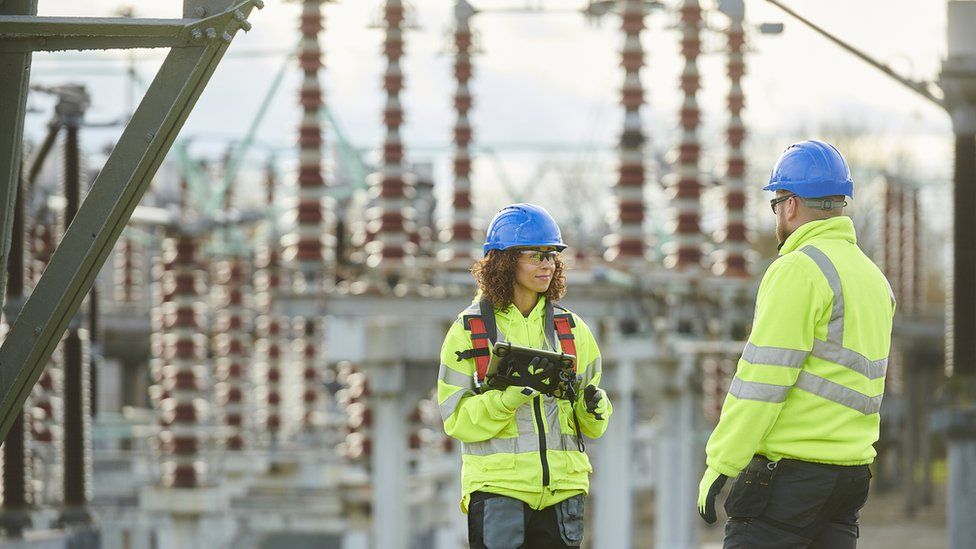
The prime minister will host a group of leading business figures on Monday at Hampton Court to highlight foreign firms' plans to invest in the UK.
Rishi Sunak said £29.5bn of new investment had been promised, which he described as a "huge vote of confidence" in the UK economy.
Last week's Autumn Statement included some measures to encourage more business investment.
But it came against a backdrop of lower growth forecasts.
The Autumn Statement measures were largely designed to persuade domestic firms to invest more, an area in which the UK has been lagging behind its G7 peers.
The government said the UK's track record on attracting foreign investment remained strong.
Last week, Nissan announced that it would build three electric car models at its Sunderland factory as part of a £2bn investment plan which could secure up to 6,000 UK jobs.
However, Mr Sunak recently announced that the HS2 high-speed rail line from the West Midlands to Manchester would be scrapped.
Earlier this month, the government was also forced to restructure a deal to entice energy firms to invest in offshore wind farms after an auction last September failed to attract any bidders.
Labour said the government's policies had been a "total failure" when it came to growth and business investment.
"The past 13 years of Conservative government has been marked by a complete lack of stability, consistency and ambition which has turned potential investors away from Britain," said Jonathan Reynolds, shadow trade and business secretary.
Deanne Stewart, chief executive of Australia's biggest pension fund Aware Super, will be attending the summit and is opening the firm's first overseas office in London to invest in infrastructure, property and private equity.
Commenting on the recent announcements on HS2 and green energy, she told the BBC's Today programme: "Certainly as we have spent time with the government, our understanding is there is a healthy pipeline.
"But in the UK, like in most countries, there is a degree of risk."
Ms Stewart said that Aware Super plans to invest £5bn in the UK, adding: "We would not participate in [projects] if they did not have that really strong certainty and really strong policies around them."
As well as Ms Stewart, others attending the summit include Stephen Schwarzman, chief executive of investment giant Blackstone, David Solomon from investment bank Goldman Sachs and Jamie Dimon at JP Morgan Chase.
Mr Sunak pointed to the UK's "culture of innovation and thriving universities" and highlighted "clean energy, life sciences and advanced technology" as key areas where he said inward investment was already creating jobs and driving growth.
However, at last week's Autumn Statement, the UK's economic growth forecasts were downgraded by the Office for Budget Responsibility (OBR), the independent fiscal watchdog.
It now expects the economy to grow by 0.7% next year, down from a previous forecast of 1.8%, while in 2025 it predicts growth of 1.4% compared to an earlier estimate of 2.5%.
During the statement, Chancellor Jeremy Hunt announced that tax breaks for firms who invest in their business would be made permanent. It means that companies who spend on equipment, plants and IT can claim back 25p for every £1 they invest.
But many businesses are paying a higher rate of corporation tax after it rose from 19% to 25% earlier this year.
Alistair Phillips-Davies, chief executive of energy firm SSE, said the tax offsetting measure was "going to help with growth, with jobs and with attracting companies like ours - we've got £20bn plus to spend over the next years".
But he said the "consenting" process needed for companies to build offshore wind farms was a "huge barrier" to growth.
Mr Phillips-Davies said SSE is building a huge offshore wind farm at Dogger Bank, off the coast of Yorkshire, but he told Sunday with Laura Kuenssberg it could take "10-plus years to get a wind farm bill and a lot of that time, the majority of that time, is spent in consenting".
Among the projects that will be confirmed on Monday are a £10bn investment from Australia's IFM Investors into infrastructure and energy projects and a commitment to build a new lab in Cambridge from BioNTech, the firm which pioneered the mRNA Covid vaccine.
Some of the sums on the list of projects that are being announced at the summit are ones that investors had previously disclosed, and which are now ready to attach a specific investment figure to.
Others, such as IFM's investments, have already begun, and future investment sums are now being clarified. Other firms are adding new investments to existing portfolios.
Among the projects being highlighted are a £7bn boost to the amount Spain's Iberdrola is investing in UK electricity transmission and distribution and £2.5bn from Microsoft in AI infrastructure.
Related Topics
https://news.google.com/rss/articles/CBMiLGh0dHBzOi8vd3d3LmJiYy5jby51ay9uZXdzL2J1c2luZXNzLTY3NTM4ODM30gEwaHR0cHM6Ly93d3cuYmJjLmNvLnVrL25ld3MvYnVzaW5lc3MtNjc1Mzg4MzcuYW1w?oc=5
2023-11-27 08:59:03Z
2629515235
Tidak ada komentar:
Posting Komentar